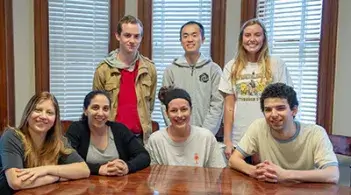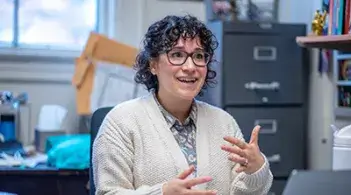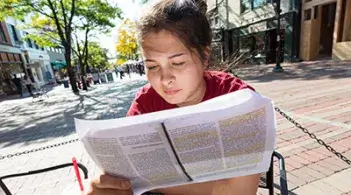“Religion is always in the room”
- Liz Kineke, formerly of CBS Religion
Scholars used to think that religion would become less important in the world as societies modernized. However, in ways that are both visible and hidden, religion remains an essential part of culture in the US and around the world in the early twenty-first century. The study of religion at UVM provides students with the tools to understand how religions affect people's lives and communities, both in the past and in the present. Examining narratives, practices, and communities, we ask how religions provide meaning, and how these systems of meaning are in turn shaped by systems such as gender, race and ethnicity, and nationalism. Discover why people study religion and learn more about the B.A. in Religion, or the Certificate in Religious Literacy in Professions.
What Makes Us Special

Classes That Challenge and Enlighten

A Faculty of Scholar-Teachers





